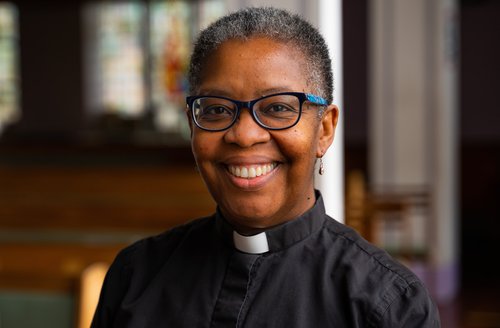The role of black women in Methodism
Nicola Sylvester, Connexional Safeguarding Policy Manager gives her thoughts about the role of black women in Methodism as part of Black History Month.
The month of October is when the UK celebrates Black History Month. Of course we know that all our histories are intertwined and that to understand one without the context of all other human history makes no sense. And for all those I can hear shouting at the screen Black History is every month – I know, I know!
Black women have played in shaping history and inspiring change. There are many examples in our public life in the UK, but in the United States, black women have been essential in building religious communities, among which The United Methodist Church is one. Black female leadership in US Methodism dates back to the 1800s with many examples of ground-breaking women some of whom are the founding mothers of the NAACP (National Association for the Advancement of Coloured People), an organisation that still exists today.
There is the example of Rev. Sallie A Crenshaw born in 1900. Crenshaw became one of the of the first two Black women to be received as a full clergy member of the East Tennessee Conference in the racially segregated Central Jurisdiction just two years after The Methodist Church approved full clergy rights for women in 1958. She served as a missionary to Black coal miners and later pastored churches in the poor neighbourhoods of East Tennessee. She is also remembered for her mission work, offering Bible studies, Sunday school classes and feeding programs for children.
 Closer to home, The Methodist Church made history when the Revd Sonia Hicks (image right) became the First female black President of the Methodist Church in Britain. It reminds us that history is still being made and is very much part of the present. When I joined The Methodist Church’s safeguarding team in March 2021, as someone from outside the denomination, I wanted to understand what more about the mission of the Church. For that, I needed to look no further than the safeguarding policy which states:
Closer to home, The Methodist Church made history when the Revd Sonia Hicks (image right) became the First female black President of the Methodist Church in Britain. It reminds us that history is still being made and is very much part of the present. When I joined The Methodist Church’s safeguarding team in March 2021, as someone from outside the denomination, I wanted to understand what more about the mission of the Church. For that, I needed to look no further than the safeguarding policy which states:
‘At the heart of the Methodist community is a deep sense of the place of welcome, hospitality and openness, which demonstrates the nature of God’s grace and love for all. Our church communities are called to be places where the transformational love of God is embodied and life in all its fullness is a gift, which is offered to all people.’
As we celebrate Black History Month, I shall certainly remember those words for all people in marginalised groups.